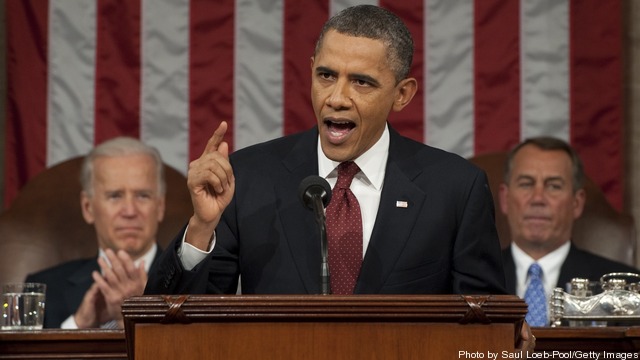 A truck with the natural gas industry, one of thousands that pass through the area daily, drives through the countryside to a hydraulic fracturing site on January 18, 2012 in Springville, Pennsylvania.
A truck with the natural gas industry, one of thousands that pass through the area daily, drives through the countryside to a hydraulic fracturing site on January 18, 2012 in Springville, Pennsylvania.
In the continuing debate over whether fracking for natural gas contaminates drinking water, a new health center in the midst of Pennsylvania’s drilling country may provide fresh clues. Keep reading →









